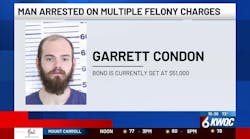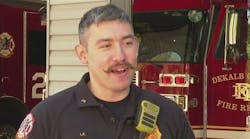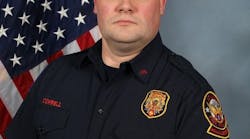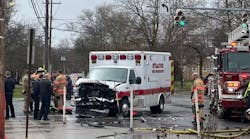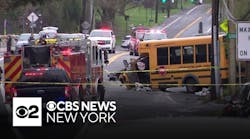But those stronger fire codes have been since been loosened, the criminal trial won't start until next year and some families continue to struggle with financial challenges brought on by crippling injuries or the deaths of their loved ones.
Two years after the Feb. 20, 2003, fire, the survivors and victims' families are still waiting for resolution.
Anne Marie D'Alessio, director of the Rhode Island Victims' Advocacy and Support Center, said that for many people, the second anniversary of the fire is harder than the first.
"Last year, people were still in shock,'' she said. Now, ``reality is setting in more.''
Nightclub owners Jeffrey and Michael Derderian, and Daniel Biechele, the former tour manager for the band Great White, pleaded innocent in December 2003 to 200 counts each of involuntary manslaughter. Their criminal trial isn't expected to begin until January 2006 at the earliest.
The fire was started after the band's pyrotechnics set on fire highly flammable foam that had been placed around the stage as soundproofing.
For those affected by the fire, waiting for that trial is difficult, D'Alessio said.
"While people are still moving forward ... you're kind of held hostage,'' she said. "There's no closure. That's a myth. But you can close chapters.''
Lawsuits against the three men, as well as members of the band, state officials and a host of companies, are on hold while the criminal case goes forward.
While the legal issues have crawled, there are signs of progress.
In September, the largest single source of charitable help for those affected by the fire, The Station Nightclub Fire Relief Fund, stopped providing direct financial assistance. It had distributed about $2.76 million for funerals, housing, emergency travel, food, clothing and a range of social services.
The remaining $510,000 in the fund and all future contributions are earmarked for five more years of case management for survivors and victims' families and to provide services and educational grants for affected children.
Other financial help has come from the state Crime Victims Compensation Fund. Survivors of the fire and victims' families qualified for the fund after the Derderians and Biechele were criminally charged.
Catherine Avila, the state's deputy treasurer for administration, said the state has received 256 applications to the fund, paid 117 of the claims, and is reviewing the others. The fund, which is intended as a last resort, has paid out $938,000, for an average award of $8,017. The maximum payout the fund can make is $25,000.
While there are claims remaining, the state has reduced its estimate of the amount of money needed to cover them. Avila said it's a good sign.
"I think what it suggests is the community has really responded and many of the financial needs were met through other resources,'' she said.
However, Victoria Potvin, a fire survivor, who now heads up The Station Family Fund, formed to assist those affected by the disaster, said her group still sees tremendous need. In particular, she cited the cost of health insurance for survivors who have not returned to work and are waiting to be certified as disabled, which would make them eligible for social security disability benefits.
Some of those people are still undergoing skin grafts and other surgeries. Insurance premiums, the cost of heating bills, child care and groceries tapped out the fund for several weeks, causing it to shut down to all but emergencies from January through the end of this month, she said.
A series of fund-raisers is planned this month for the fund, which has raised some $565,000 since its inception.
"Right now, there's just too much need for us to change anything we're doing,'' Potvin said.
Another small step forward for victims' families is a recent decision by the attorney general's office to release to families the personal effects found in the rubble of the club. Items the victims were carrying were already returned, but those found at the scene were being treated as possible evidence. The health department and governor's office are discussing how match the items to families and survivors.
Less than five months after the fire, Gov. Don Carcieri signed into law what was believed to be one of the toughest sets of fire-safety regulations in the nation.
By July 1, nightclubs and other places of assembly that hold 300 or more people must install sprinklers.
In the past year, however, lawmakers responded to pleas from businesses who said they couldn't afford the changes, or couldn't make them in time, empowering a state board to grant extensions for meeting the new codes.
As of late December, the state fire marshal's office said there were 74 nightclubs in the state facing the July deadline that needed sprinklers. The state Fire Safety Code Board of Appeal and Review did not return messages seeking comment on how many, if any, had applied for extensions.
Complaints about costs also prompted the state to offer exemptions for some schools, churches and buildings with seasonal use, such as summer camps.
Another disappointment for fire victims' families is the lack of progress on work to build a memorial where the club once stood _ where many say they feel closest to those they lost.
The property's owner, Triton Realty, initially said it would donate the two-thirds of an acre for a memorial, but backed off when litigants named the company as a defendant in civil lawsuits. Now, few are hopeful the land will be released before the suits are resolved.
Related Article :

